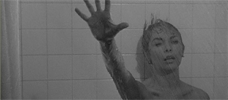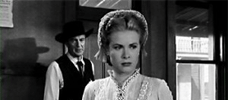Reviews
Roman Polanski
USA, 1974
Credits
Review by Glenn Heath Jr. and Michael Nordine
Posted on 01 February 2011
Source DVR
Categories Blind Spots
Forget it, Jake. It’s Chinatown.
Introduction by Glenn Heath, Jr.
I first visited the densely layered noirscape of Chinatown during an initial exploration of 1970’s American cinema at 16, a special stage in my young awakening to the power of genre cinema. The bustling shelves of Blockbuster video housed many shocking game-changers during this period, but Chinatown afforded a special form of eye-opening experience my naïve soul wasn’t entirely ready for. In the hypnotic story of arrogant private detective Jake Gittes investigating the death of a local Los Angeles Water Board official, good and evil are no longer certainties but varying shades of emotional uncertainty that help illuminate 1930’s Los Angeles as a manmade, capitalistic limbo. The mystery is not just represented in the serpentine plot, but in the shifty mannerisms of people on the verge of discovering awful truths. By the end of Gittes’ futile investigation, the facts suddenly mean nothing and perception means everything, a challenging dichotomy that resonates even more in our present “event film” culture. After multiple viewings, the film remains a brilliant foray into the sun-drenched iconography of a tragic past that feels entirely current.
Roman Polanski’s deeply rooted detective film is at once a throwback to old school Film Noir themes and an illustration of Neo-noir stylistics, a warning against the ubiquity of corruption and a reminder of its all-encompassing stranglehold on the human spirit. The intricate screenplay by Robert Towne, the deeply enigmatic performances by Jack Nicholson, Faye Dunaway, and John Huston, and the hazy cinematography by John A. Alonzo all crackle with a deceptive element of danger that speaks to the film’s lasting impact. For me personally, the wrenching themes of fatality and failure are what make Polanski’s sinister universe of incest, desire, expectation, and tragedy all the more devastating. The darkness hiding beneath the sunlight of an orange grove, the seamless manipulation of social codes, and the haunting disavowal of finite emotions all play a special role in the film’s diabolical thematic ambiguity, and are just a few examples of what make Chinatown one of the most disturbing exposes on American power ever put to film. Many have tried to replicate the movie’s mixture of genre cinema and politics, but Polanski’s scathing masterpiece remains a singular filmic experience.
Review by Michael Nordine
If the above epigraph strikes you as the most trite and uninspired way to start this review, that’s because it may well be. But it’s also the most fitting, for me at least, because for years the only thing I knew about Chinatown was that this is its best-known line; my stepfather made a habit of quoting it whenever he would admonish me for not having seen it. And, much as I’d like to provide an interesting anecdote as to why I’d never silenced him until early January of this year, I simply never got around to it. My Netflix queue is currently home to exactly 146 unwatched films — 80 on DVD or Blu-ray, 66 on Instant — and Chinatown had been sitting somewhere near #12 for months before this feature prompted me to finally move it to the front of the line.
The prospect of watching a classic is sometimes intimidating. It’s as though the older, longer, and more revered a film is, the more one feels duty-bound, rather than excited, to experience it. Chinatown’s reputation, I’m happy to report, is well-earned. It has also aged well, and feels less like an artifact and more like the genre- and era-defining film it has often (and justifiably) been called. All this in spite of an ordinary premise: the film’s machinations — a dispute over water — seem mundane on the surface, and yet the particulars of the case ultimately imbue it with an unlikely intrigue. The mystery around which Chinatown truly revolves concerns a man drowning in a reservoir at the height of a drought. With the rest of 1930s Los Angeles feeling a lack, one man dies of forced excess. That the man in question used to be head of the water department further highlights the film’s undercurrent of irony, as does something said by its protagonist — a detective of the hardboiled variety named Jake Gittes — early on in the film. When a woman means to hire him to confirm that her husband is cheating on her, Jake asks her if she still loves her husband. The woman says yes, and Jake offers her this bit of advice:
You ever hear the expression “let sleeping dogs lie?” Sometimes you’re better off not knowing.
Jake thus establishes himself as cynical in a way that is to be expected from such a character, but more of note than the words he uses is the manner in which he says them. Jake is many things, but uncaring isn’t one of them. If anything, he’s resigned. This, too, is par for the course, but Jake is a nuanced enough character to always be hinting at his inner workings without ever revealing just what they might be. This pattern — the suggestion of meaning without the revelation of it — is present throughout the whole of the film. What follows from this point is, naturally, two hours of Jake ignoring his own advice and turning his latest case into a personal one because, like that woman, he has to know.
This, coupled with a later revelation of incest (not involving Jake), makes an Oedipal interpretation of the film tempting, if something of a stretch. There is also, of course, the question of his nose. A private investigator without the use of any one of his senses — even smell, presumably the least important — seems, if not an actual disability, certainly a nod toward Jake being somehow weakened in his faculties. Too, it brings Oedipus to mind once more: the injury itself occurs when a man — director Roman Polanski in a cameo — slashes Jake’s nose from the nostril up. The resulting blood (to say nothing of the face-obscuring bandage) is not so dissimilar from that caused by a man gouging out his own eyes, and the fact that it’s Polanski himself who does the slashing is significant. For a moment, he becomes a sort of inverted deus ex machina to punish the wrongdoings of one of his characters. The warning is, of course, ignored, and Jake proceeds down the dark path he’s already set out upon.
Polanski and screenwriter Robert Towne evoke a strange, alien Los Angeles as the backdrop of this journey. That it is so different from my closest fictional frame of reference — John Fante’s similarly 1930s-set Ask the Dust (an underwhelming adaptation of which Towne wrote and directed in 2006) — only serves to further disorient my perception of the city I call home. This is likely intentional. “Summer colds are the worst,” Jake says at one point, acknowledging the second sick person he’s come across; it’s almost as though their ailments are endemic to the time and place in which they live. That Chinatown is a period piece lends this thought credence, but it also raises a question: what’s causing their illness? Jake later says that it’s easy to find people in Los Angeles, as it’s a small town. The forces he’s ultimately up against, however, are intent on incorporating the San Fernando Valley into the city, thus making it decidedly larger. Could the affliction these characters suffer from be a bodily reaction to the looming sea change over which they have no control? This, too, may be reaching, but the film is multilayered enough to warrant such pondering. Chinatown draws clear lines between its kings and pawns, and only the latter ever feel unwell.
And thus the famous quotation’s significance begins to reveal itself: in the face of unchecked power, the rest of us are helpless. A more well-known and disheartening call for resignation doesn’t come to mind.
More Blind Spots
-

Pee-wee’s Big Adventure
1985 -

The Matrix
1999 -

Amélie
2001 -

The Breakfast Club
1985 -

Psycho
1960 -

Blade Runner
1982 -

Chinatown
1974 -

Monty Python and the Holy Grail
1975 -

Rocky
1976 -

High Noon
1952 -

Ferris Bueller’s Day Off
1986 -

Taxi Driver
1976 -

The Godfather
1972 -

E.T.
1982 -

Pulp Fiction
1994
We don’t do comments anymore, but you may contact us here or find us on Twitter or Facebook.



